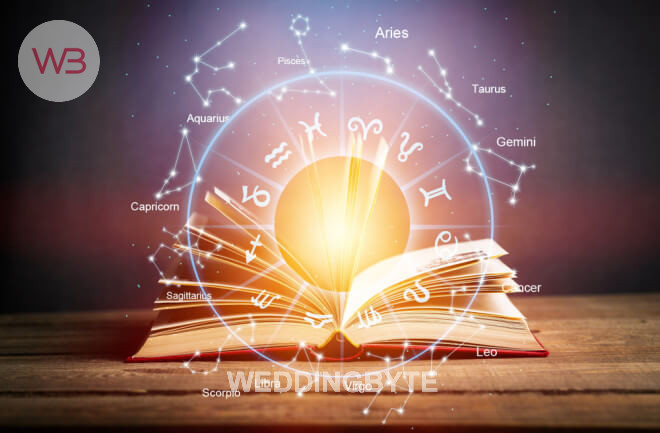
Do Astrology Predictions Really Matter? Find Out!
ArticlesAstrology has intrigued humanity for centuries, offering a cosmic roadmap for love, career, and personal growth. But do astrology predictions really matter, or are they simply a form of entertainment? Many people start their day by reading their horoscope or consulting the stars for guidance. Are these predictions genuinely shaping our decisions and lives, or are they just a fun distraction? In this article, we'll delve into the world of astrology, explore its psychological impact, and examine whether astrology predictions hold any real significance. Let's find out!
1. The Popularity of Astrology: A Cultural PhenomenonA Timeless Practice in Modern Times
Astrology has deep roots in ancient civilizations, from the Babylonians to the Greeks and Romans, who used the stars to predict earthly events and guide decision-making. Today, astrology has evolved into a popular cultural phenomenon, especially among millennials and Gen Z. With horoscopes readily available online and through apps, more people than ever are turning to astrology for insight into their lives.
Why Do People Turn to Astrology?
People turn to astrology for various reasons. For some, it offers a sense of control or comfort in an unpredictable world. For others, it serves as a tool for self-reflection or personal development. During times of uncertainty, like a career change or a relationship struggle, astrology can provide a sense of direction or affirmation, even if it is based on the positions of celestial bodies rather than concrete facts.
2. The Psychological Impact of Astrology Predictions
The Power of Suggestion and the Barnum Effect
One reason astrology predictions seem to matter is the psychological phenomenon known as the Barnum effect. This effect occurs when individuals believe that vague, general statements about personality or life events are highly accurate for them personally. Horoscopes are often crafted in broad terms, making them applicable to many situations and allowing readers to find personal relevance in the messages.
Astrology as a Tool for Self-Reflection
Astrology can serve as a mirror for self-reflection, helping individuals think about their lives, motivations, and relationships. When people read their horoscopes, they might reflect on their behaviors or decisions in a new light. This introspection can be valuable, leading to personal growth and a deeper understanding of oneself, regardless of whether the predictions are rooted in cosmic truths.
3. The Influence of Astrology on Decision-Making
Astrology in Daily Life: Harmless Fun or Guiding Star?
Many people use astrology as a guide for everyday decisions, from choosing what to wear to planning their social activities. Some individuals even base significant life choices, such as career moves or marriage decisions, on astrological advice. But is this wise? Critics argue that relying too heavily on astrology can lead to poor decision-making based on unscientific principles.
Confirmation Bias and Astrology Predictions
Confirmation bias plays a significant role in how people perceive the accuracy of astrology. When a horoscope or prediction aligns with a person's current situation or mindset, they are more likely to remember and believe in its accuracy. On the other hand, predictions that do not resonate are often dismissed or forgotten. This selective memory reinforces the belief in astrology's relevance, even if it is based on coincidental or generalized information.
4. Scientific Scrutiny: Astrology as a Pseudoscience?
Astrology’s Lack of Empirical Evidence
Despite its popularity, astrology lacks empirical support and is widely regarded by the scientific community as a pseudoscience. Most scientific studies fail to find a correlation between astrological predictions and actual outcomes. For example, research has shown that people cannot reliably match personality profiles to their astrological signs better than chance.
The Role of Astrology in Modern Science
While astrology is not considered a scientific discipline, some argue that its value lies in its cultural and psychological impact rather than in its predictive accuracy. Astrology encourages people to think about their place in the universe, their relationships with others, and their personal growth, even if it doesn't provide scientifically accurate predictions.
5. Should You Trust Astrology Predictions? Pros and Cons
Pros of Following Astrology
Personal Insight: Astrology can provide a framework for self-reflection and understanding, offering insights into personality traits and behaviors.
Emotional Comfort: For some, astrology provides comfort and reassurance during uncertain times, acting as a coping mechanism.
Entertainment Value: Many people enjoy reading their horoscopes and find joy and entertainment in exploring astrological insights.
Cons of Relying on Astrology
Lack of Scientific Basis: Astrology lacks empirical support and is not grounded in scientific evidence, which can lead to misguided beliefs and decisions.
Potential for Over-Reliance: Relying too heavily on astrology can lead to poor decision-making based on unproven principles.
Risk of Confirmation Bias: Astrology predictions often capitalize on vague statements that encourage confirmation bias, leading people to see patterns that aren't necessarily there.
Conclusion
Do astrology predictions matter? The answer isn't straightforward. While astrology may not have a scientific basis, its value lies in its ability to provide comfort, entertainment, and a framework for self-reflection. For many, astrology is a fun and engaging way to explore their personality and life's possibilities. However, it's essential to approach astrology with a critical mind and recognize its limitations. Whether you're a firm believer or a skeptical observer, astrology offers a unique lens through which to view the world—one that reflects our deep desire to find meaning in the stars.





